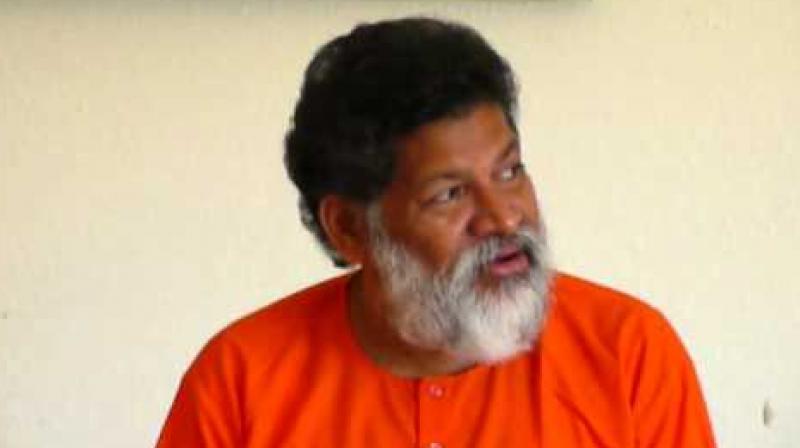Of art and music: Meet Bodhananda, the cutting edge Swami
Swami Bodhananda is the founder and the spiritual head of Sambodh Foundation in India and USA.

Swami Bodhananda, the founder and the spiritual head of Sambodh Foundation in India and USA, who has participated in numerous public forums, university lectures and meditative sessions, is also an accomplished teacher of Vedanta and Meditation. Swamiji has written many books on management, including personality re-engineering and self development for global competitiveness and he has been characterised as a ‘cutting edge swami’, deeply imbued with the perennial philosophy of Vedanta, linking and connecting the teachings and values, contained in our scriptures, as a living expression of its ideals. Now, swamiji is in Chennai, to give a series of lectures on actionable values for management and leadership in India. Excerpts from a freewheeling discussion with swamiji.
On dharma:
The Vedic descriptions on dharma and righteousness are different. Vedas may describe a business in terms of its outcome viz. it should do the maximum good to the maximum people, by picking intelligent choice, among the plethora solutions.
Is practice of dharma a zero-sum game?
No, we should ensure that individual prosperity and societal prosperity does not amount to zero-sum game. Of course, working towards societal well-being reinforces individual prosperity.
Philosophy of Dharma in the corporate world:
Economists are discussing new tools like happiness index, well-being index, human development index - to measure performance of economy. The official Chinese policy is claimed to be the creation of harmonious society which is the meaning of dharma.
Modern Management and Mahabharatha:
The objective in linking scriptures like Mahabharatha to modern management is to present a methodology of unlocking management nuggets, from the treasure chest of stories from the scriptures. There is no better way of communicating obtuse truths than through the stories.
On modern manager:
Is to set his goals high, with a combination of Yudhistra, for his passion for truth and justice, Krishna with His strategic and holistic vision and Arjuna with his self-confidence and perfection in execution.In the course of the conversation, he adeptly blends his personal experience and knowledge of India’s ancient wisdom tradition with modern studies in consciousness and psychology. No doubt, he certainly exemplifies the highest Vedantic ideals and advices as to how we should remain outwardly active in the world, while remaining inwardly detached applying a holistic paradigm for understanding complex situations.
(The writer is a well known music critic who has won awards both in India and abroad for propagation of classical arts and music)

